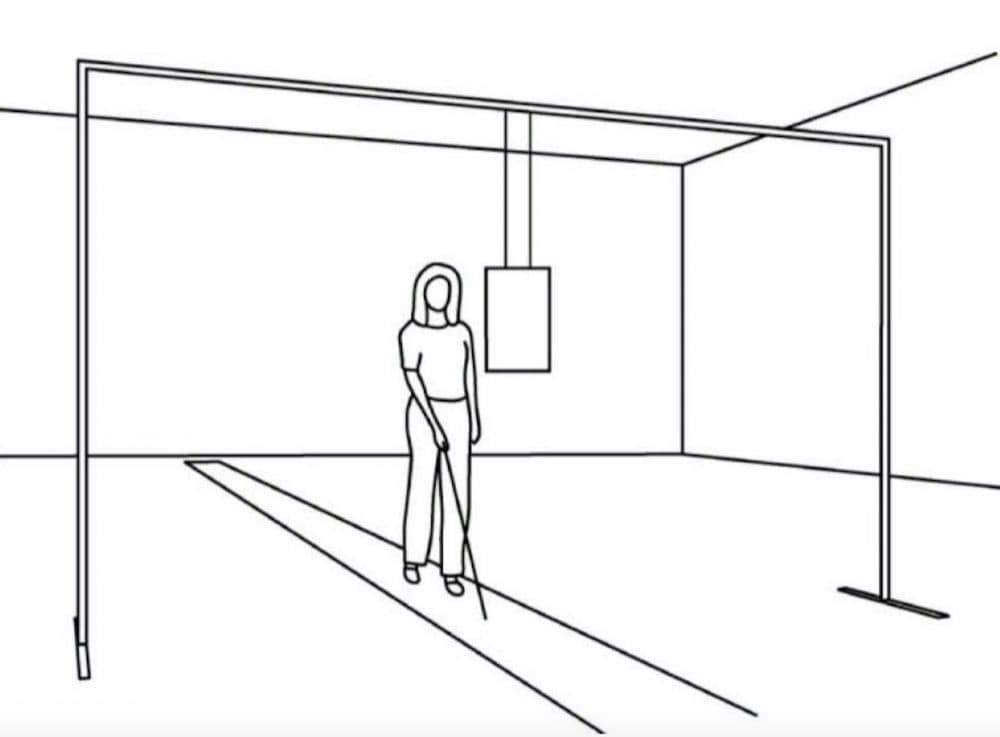Advertisement
Latest On How Humans, Like Bats, Use Echolocation To Find Their Way Without Sight

When a bat flies through a forest in the dark, it emits high-pitched sounds and hears their echoes bouncing off different objects. This echolocation lets it avoid trees or catch prey without using vision.
As it turns out, humans can use echolocation as well. Don’t believe me? Watch this YouTube video below, among others, to see “Batman” Daniel Kish echolocating:
Despite being totally blind, Kish casually rides his bike around the neighborhood, staying on the road and dodging cars. Much like bats, he and many other blind people tap their canes or make clicking noises with their tongue to “see” what’s around them.
Last week, scientists summed up research on human echolocation abilities at a major Acoustics conference in Boston, including this potentially useful echolocation hierarchy: Long sounds like "shhh" or "swish" are better than short clicks for echolocation, and the clicks are more effective than cane tapping. The key information largely comes from the pitch, loudness and timbre of echoes bouncing off of objects, reported Dr. Bo Schenkman from the KTH Royal Institute of Technology in Stockholm, Sweden.
In previous studies, Dr. Schenkman used recordings to compare how blind and sighted people identify echoes ricocheting off aluminum discs. Not surprisingly, blind people were much better at the task on average.
“Most of the blind perform fairly well within two meters and can guess what the object is,” Dr. Schenkman said. “It’s astonishing how good some people can be.”
Human echolocation can be so accurate that, in some cases, people can even tell whether the surface of an object is rough or smooth, reflective or absorbent.
Dr. Schenkman’s most recent work involved reanalyzing data from previous studies using computational models of the hearing system. His analysis showed that within two meters, people used both loudness and pitch, though pitch was more important. Timbre — or how dull or sharp a sound is — appeared more useful at greater distances.
To some extent, he found, people who are blind can also suppress "the precedence effect," which is when two identical sounds made close together in time are heard as a single sound.
One thing he was surprised by during his research, he said, was that blind people were better at echolocation in conference rooms than in special chambers that minimize echoes.
“We thought [echolocation] would be easiest without reflections, but it turned out to be the opposite,” he said. “On the other hand, having too many echoes isn’t ideal either, due to sound interference.”
So how can this research be used to help blind people? Those who feel too self-conscious to make clicking noises in public could use subtler echolocation devices instead, and recent findings could help with their development, Dr. Schenkman said.
In fact, there are devices in the works right now, from helmets to wristbands, that make it even easier for blind people to navigate their surroundings. The Sonic Eye, for example, is a helmet that emits ultrasonic chirps, collects reflected sound waves in two bat-shaped ears and slows down the recorded echoes using a computer program for the helmet wearer to hear. Though this is closer to the echolocation that bats use than humans, this technology can still provide useful information about the surrounding world.
Another possible application: architects could pay more attention to how sound reflects in a building, especially if it’s meant to house visually-impaired people.
Dr. Schenkman is also interested in training programs to directly help blind people use echolocation to navigate: “They can always learn," he said, "and starting in a safe environment can give them confidence and really help them go about their daily lives.”
